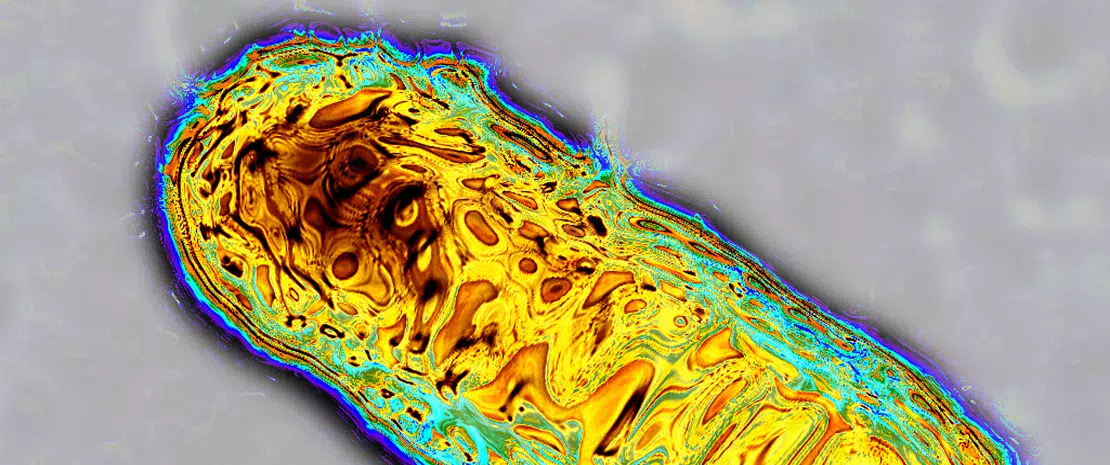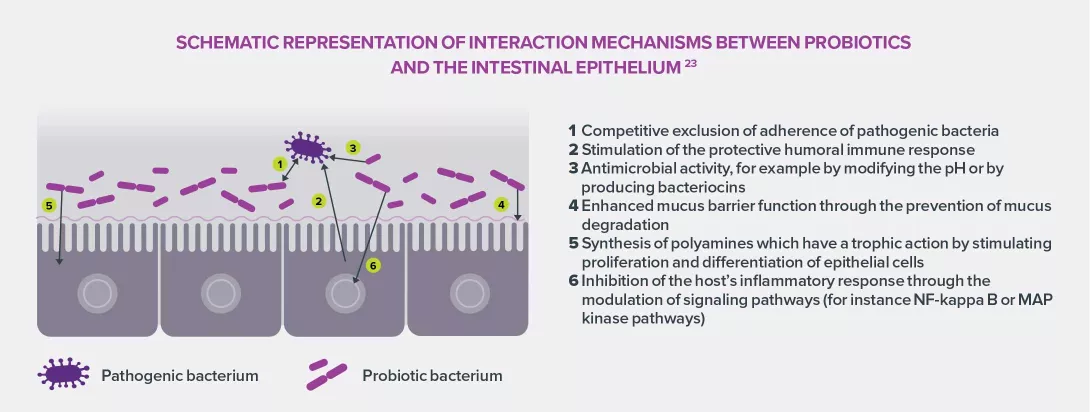Is intestinal dysbiosis the cause of persistent diarrhea?
Persistent diarrhea is a major cause of child mortality but its origin remains controversial. The composition of the intestinal microbiota is a hypothesis which could lead to numerous answers regarding this disease with an unclear pathogenesis.
Lay public section
Find here your dedicated section
Sources
This article is based on scientific information
Sections

Escherichia coli
About this article
IS PERSISTENT DIARRHEA AN INFECTIOUS DISEASE...
Persistent diarrhea is a particular form of the disease, defined as an episode lasting more than 14 days (beyond 30 days, it is called “chronic diarrhea”). The mortality rate attributed to persistent diarrhea has been determined (54% of all deaths caused by diarrhea) but its pathogenesis is still poorly understood: is it the progression of an acute episode or a disease in its own right? Through a literature review it was revealed that the majority of researchers consider persistent diarrhea to be an infectious disease associated to an intestinal colonization by pathogenic bacteria, be it followed by an acute or another episode.20 This colonization could be promoted by malnutrition and other factors (especially exposure to antibiotics) susceptible to cause intestinal dysbiosis.
... OR IS IT DUE TO MICROBIAL DYSBIOSIS?
Among other etiologic hypotheses, the theory of a bacterial outbreak is gaining momentum. It was born from the observation that an abundant presence of commensal bacteria, especially Escherichia coli, disrupts lactose absorption. Connecting intestinal dysbiosis, levels of E. coli and persistent diarrhea could provide several clues to elucidate it pathogenesis. On this topic, certain probiotics have shown their efficacy to reduce the duration of acute diarrhea and persistent diarrhea in children.21, 22

IDENTIFIED RISK FACTORS
An analysis of scientific literature provided a draft model of the disease pathogenesis. The first risk factor category includes very young age (under 1, risk x 3), malnutrition (risk x 2) and low birth weight (risk x 1.8). The second category includes an infection in the previous month (risk x 2) and a history of persistent diarrhea (risk x 3 to 6). The third category is related to eating habits (diet, breast milk substitutes...) which can multiply the risk by 4. Other factors have also been identified, including administration of antibiotics. Potential etiologies and confirmed risk factors underline the importance of a close collaboration between pediatricians, gastroenterologists, nutritionists and biologists. Interdisciplinarity could help obtain a deeper understanding of the relationships between infection, dietary habits and pathogenic and commensal microorganisms.
20 Sarker SA, Ahmed T, Brüssow H. Persistent diarrhea: a persistent infection with enteropathogens or a gut commensal dysbiosis?. Environ Microbiol. 2017;19(10):3789-3801.
21 Dinleyici EC, Kara A, Ozen M, et al. Saccharomyces boulardii CNCM I-745 in different clinical conditions. Expert Opin Biol Ther. 2014;14(11):1593-1609.
22 Basu S, Chatterjee M, Ganguly S, et al. Effect of Lactobacillus rhamnosus GG in persistent diarrhea in Indian children: a randomized controlled trial. J Clin Gastroenterol. 2007;41(8):756-760.
23 Girardin M, Frossard JL. Place des probiotiques dans le traitement des maladies inflammatoires intestinales. Rev Med Suisse. 2012;8(352):1674-1678.




